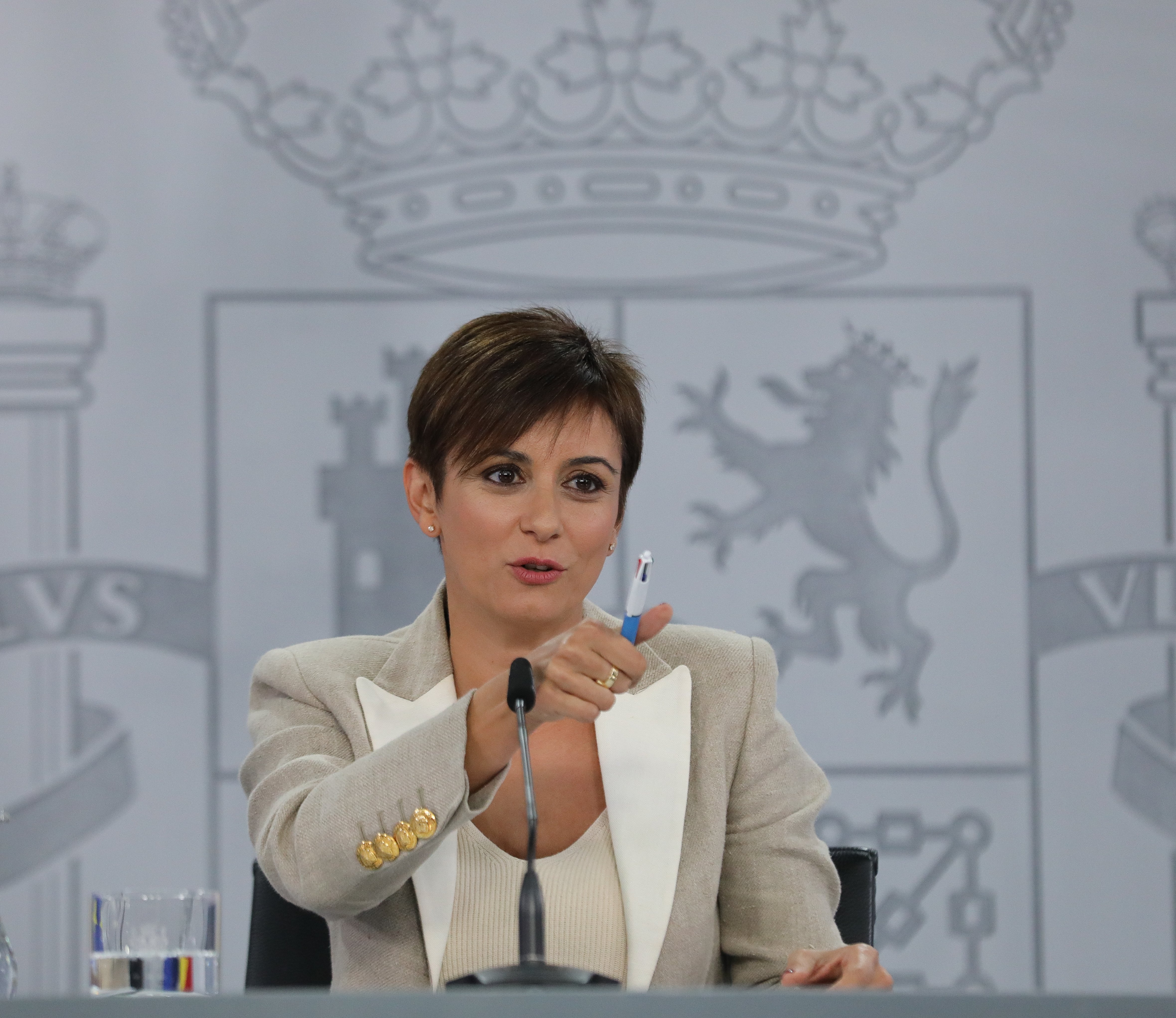An almost immediate response from the Spanish government to the Clarity Agreement proposed by the president of Catalonia, Pere Aragonès, in the Catalan Parliament's general policy debate. After the Spanish cabinet met this Tuesday, the minister and government spokesperson, Isabel Rodríguez, rejected the proposal put forward by president Aragonès. "They cling to maximalist pretensions that we do not share", said Rodríguez, who, at the same time, defended that "the public need political leaders to focus on the important things, those related to food and this is what this government is fundamentally dedicated to". According to the spokesperson, "the executive is dedicated to providing answers to the situation we live in, to facing the transformation process, in which Catalonia has a very important role to play".
The Pedro Sánchez executive upholds the dialogue table as a space and a tool to "normalize" the situation in Catalonia. "In its relationship with the Catalan executive, this government moves within the framework of the dialogue table, where we continue to move towards normalization", affirmed Rodríguez, who defended that "the path of dialogue that we proposed at the beginning of the legislature is bearing fruit; the reality that Catalonia is experiencing today is very different from what it was years ago and this is cause for celebration". for that reason, she insisted on turning the page from 2017. "What has changed since 2017 is that we now take responsibility for the fact that we must continue to work for all citizens and moving forward means normalizing, recovering priorities," the minister spokesperson emphasized, mentioning the proposals made by Pere Aragonès to help Catalan families in the current economic crisis.
Reform of sedition law depends on "majorities"
With regard to the content of the dialogue table, the Catalan government wants to develop measures to de-judicialize the political conflict over Catalonia and this would have to include the reform of the Spanish offence of sedition, which ERC wants to include in the negotiations over its support for the next Spanish government budget. The process of making required changes to the Penal Code is frozen and, according to Isabel Rodríguez, they would serve "to make this criminal offence [sedition] comparable" with the laws of Spain's neighbours. In this regard, she recalled that "parliamentary majorities must be created" for an "important law" and therefore, she argued, "if we obtain majorities we can explore this modification".
The fiscal war with the PP
Meanwhile, the central government defended that fiscal policy should serve the lowest income brackets and once again was critical of fiscal dumping policies - lowering taxes for businesses and the wealthy to attract these groups from other parts of Spain - which have been embraced by several Spanish autonomous communities governed by the People's Party. "We are not in a policy of tax reductions for those who have the least, but rather of commitment to those who are having the most difficulty", replied Rodríguez, who did not want to detail any measures in the tax package that her government is completing and that the treasury minister María Jesús Montero had spoken of on Monday. "We are working with total rigour and hand in hand with Europe", concluded the spokesperson.

